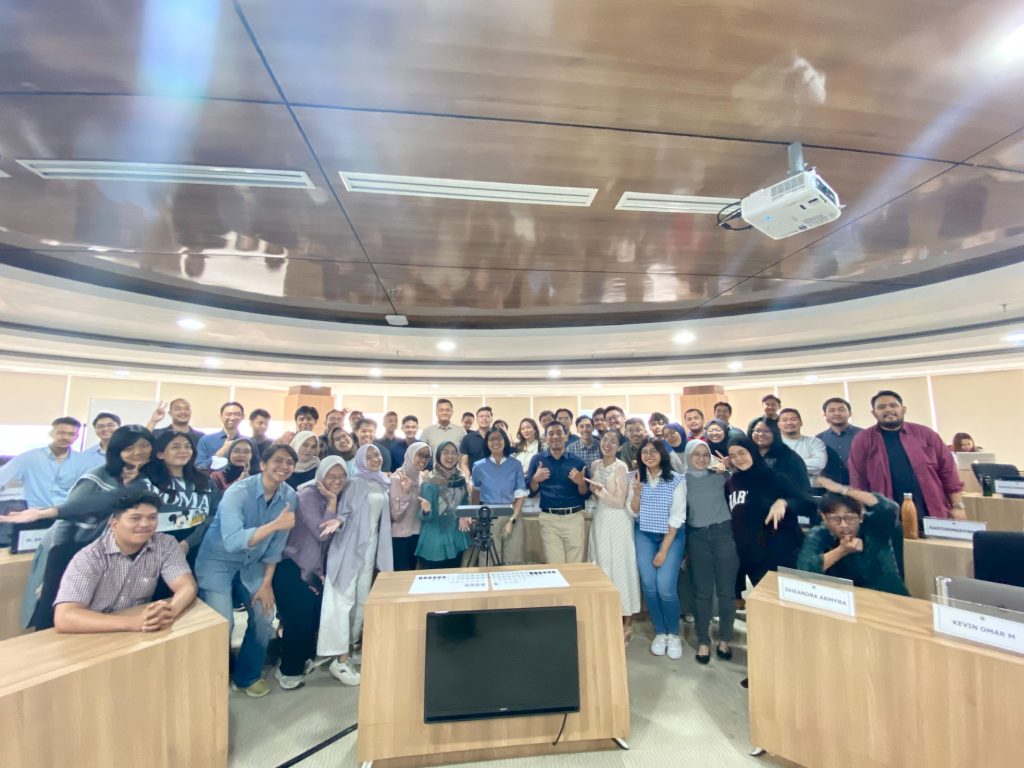Implementing sound corporate governance is a task full of challenges and the larger the company scale, the greater the challenges. SBM ITB Jakarta campus students had the opportunity to gain experience implementing corporate governance directly from the perpetrator, namely Corporate Secretary PT Nusantara Regas Ratna Dumila, on Tuesday (10/10).
Nusantara Regas is a joint venture company engaged in the management and development of floating storage and regasification unit (FSRU) facilities under PT Pertamina (Persero) and PT PGN. As a company that predominantly supplies electricity on the island of Java, especially West Java, the role of good corporate governance at Nusantara Regas is critical. Without good coordination, companies cannot provide excellent service in the electricity supply chain system.
According to Ratna, good corporate governance is vital to protect the company organization, minimize work risks, and prove good faith to achieve national and global standards. Good governance follows five basic principles, often abbreviated as TARIF: transparency, accountability, responsibility, independence, and fairness.
“Transparency means that corporate governance prioritizes openness regarding important information within the company so that decision-making can be done holistically,” said Ratna.
Meanwhile, according to the principle of accountability, companies must have transparent and accountable direction and planning in carrying out their functions. The principle of responsibility regarding social responsibility and legal compliance. Meanwhile, the independent principle emphasizes the importance of balance without domination and dependence.
“Independence is needed so that we can provide corrections to each other, to create the principle of fairness,” said this former journalist for several national television stations.
Ratna also emphasized three crucial aspects of corporate governance within her current organization. First, she highlighted the significance of maintaining a professional and well-balanced organizational governance or management. Second, she stressed the importance of compliance and commitment to acting and behaving in accordance with established standards. Lastly, she underlined the necessity of effective risk management, which involves thorough analysis, mitigation, and risk control.
In conclusion, Ratna also underscored the value of each individual’s contribution to the company. She stated, “Every individual plays a meaningful role within the organization. Always strive for excellence, collaborate effectively, and maintain open communication,” Ratna concluded.







